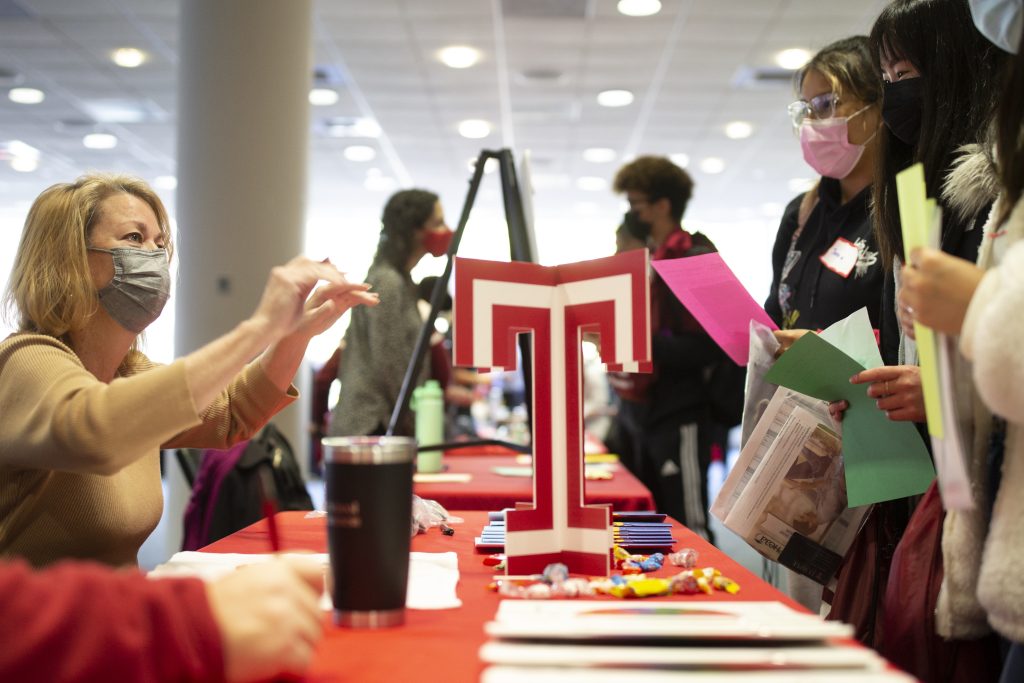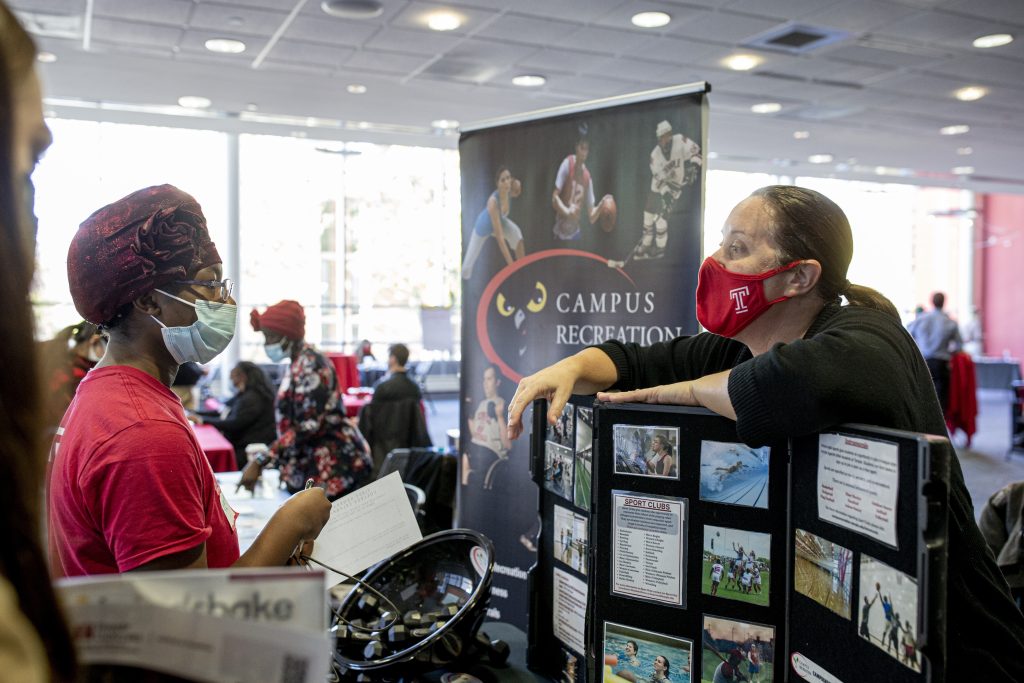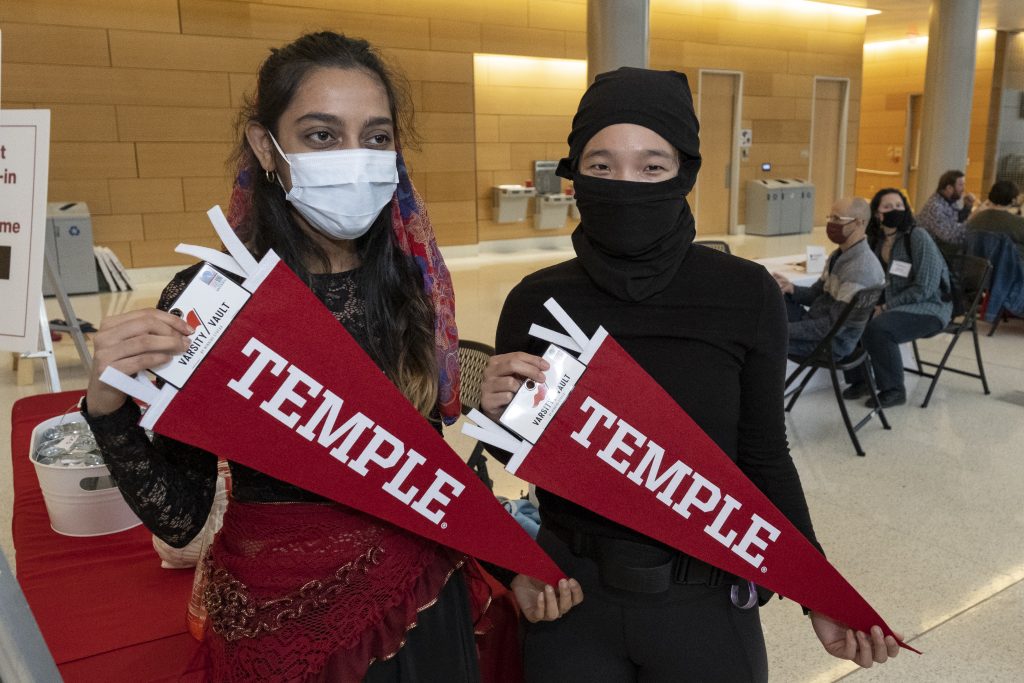Josh Kelly is a Klein ‘22 graduate student studying media production. A first-gen student himself, Kelly struggled with a lack of direction and mentorship post-graduation, entering a master’s program five years after earning a bachelor’s degree. During that time he worked as a record store clerk, a barista and a woodworker before pursuing postgraduate education.
What comes to mind when someone refers to themself as a “first-generation” student? One of the many definitions considers a first-generation student to be someone whose immediate family has not completed a four-year college degree. Although there’s plenty of nuance to this simple definition, it speaks to something at the core of first-gen experience: the flight from familiarity, the leap of faith taken in the hopes of a better future.
Many students such as myself have been the first generation in their household to attend college, and this distinction has many implications for both students and their families. I spoke with three first-generation students in the Fox School about their experiences and what that identity means to them.
The flight from familiarity
For Jennifer Zheng, Class of 2025 marketing major, college loomed beyond high school as the clear next step in her life.
“My parents immigrated to this country in order for me and my brothers to go to college,” says Zheng. “So for me, it’s a path that’s been set.”
Despite pressures to attend higher education, Zheng expressed a lack of interest in going to college after graduating high school. But these hesitations never undermined her go-getter attitude. In high school, Zheng achieved great grades, AP credits, volunteer opportunities and work experience. Her attendance at Temple has been paid for through a variety of scholarships and awards, which was helpful in easing her initial uncertainties.
“I didn’t think college was worth it,” says Zheng. “But now that I’m here, I understand that it’s enabled me to learn more about what I’m interested in while exploring other topics through GenEd classes and study abroad opportunities.”
Zheng’s studies growing up were largely focused on STEM, though she is now studying business while attending college.
“Up until now it was all chemistry, physics and data science,” says Zheng. “Now we’re learning marketing, finance and accounting. There’s always more to learn, and we take that information taught in the classroom to find real-world applications – it’s about putting theory into practice.”
The jump from STEM to a business major was met with some reluctance back home, but Zheng’s hard-working attitude and forward-focused positivity won her parents over in time.
“Eventually they trusted me to do my thing,” says Zheng. “Life is all about learning, and I never expected to learn so much here.”
Persevering in the face of uncertain situations

Evelyn Richards, Class of 2025 risk management and insurance major, aspired to go to college early in her life.
“I always knew that I wanted to go to college,” says Richards. “My parents were blue-collar workers, so I saw early on that they couldn’t get certain opportunities because they didn’t have degrees.”
News of getting accepted to the schools she applied for was bittersweet, however. The prospect of taking on debt and the complex language surrounding financial assistance turned a moment of great excitement for Richards’ family into one of concern.
“The language around loans was difficult to understand, it’s not a thing that my family was familiar with,” says Richards. “Understanding the difference between those options was difficult to do in such a short period of time.”
Richards and her family were able to work out the finances, and this past fall she walked on to campus as a Temple student.
New challenges arose, but Richards’ strength as a self-driven individual has allowed her to meet the moment. Adaptability, according to Richards, is one of the strengths of being first-gen. Outside of class, Richards has made time to join the Business Honors Association and run track. A healthy sense of competitiveness motivates Richards to give her best effort to all activities.
“It’s about being able to respond to unexpected challenges that come up throughout the process,” says Richards. “A lot of my work ethic is based on not having connections when I got to school. I think it pushes me to persevere in situations where I don’t know the answer right away but am dedicated to finding the solution.”
Finding direction through experimentation and experience
Class of 2024 financial planning major Luis Engleton-Sapon mirrors both Zheng and Richards’ drives to compete and succeed in whatever field they enter.
“I grew up playing sports and I was always super competitive,” says Engleton. “I hold myself to a certain standard, and that’s translated from sports to all aspects of my life.”
Similar to Zheng, Engleton’s parents immigrated to the U.S. from Guatemala in search of a better future for their children. His father worked in food service and has since become the owner and operator of his own restaurant. His family’s passion and effort in supporting their kids was inspirational, but he also observed the limits of that position.
“Everyone has their own path,” says Engleton. “My father always tells me, ‘I made it this far without an education, imagine how much further you can go if you get one.’”
Education opens many pathways, however discovering your own path to success isn’t always a straightforward process; a sense of direction is formed through experimentation and experience.
Directing your efforts toward new opportunities can feel exciting and challenging. On one hand, it’s exciting to connect with a new subject, on the other hand, the challenge of pivoting emerges.
“I started off as a statistics major—did a little computer science, then realized it wasn’t what I wanted to do,” says Engleton. “Plenty of people don’t know what they’re doing at first, you need to be able to form your own opinion.”
Engleton has since decided to empower himself to act as a bridge between his community and the financial institutions that help people achieve personal growth and manage their funds.
“At this point in my life, I just want to learn as much as I can,” says Engleton. “I want to put myself in a position where I’m qualified to teach people about financial literacy. One of the things that surprised me the most about Temple was just how many resources there are here. If you want to learn about something, you most definitely can.”
Advice for first-gen students, from first-gen students

A common first-gen experience entering college is one of culture shock; being thrown headfirst into a bustling world of activity is made even more difficult without resources at home to provide context or specific advice about navigating campus life.
“One of my biggest challenges was not knowing where to get started,” says Engleton. “You might not have a mentor in your college career to guide you just yet, especially when you’re just dropped in the middle of everything.”
Knowing when it’s time to ask for guidance and who to speak with is often unclear, so becoming proactive in meeting new people and developing relationships helps to build a crucial network of support to guide you both through your time on campus and beyond graduation day.
Whether it’s through dedicated resource centers, advisors or professors, Temple offers students access to a vast network of experienced professionals, helpful information and the tools to get the most out of their efforts.
Beyond institutional resources, campus life introduces people to a separate but related wealth of social resources; budding friendships, mentors, colleagues and community all add to the richness and vibrancy of the college experience. When you are truly engaging with others through classes, clubs and activities, no time is wasted.
“You have to be open to new experiences and see what happens,” says Richards. “It’s easy to feel pressured to be the best when you’re first-gen, but I think it’s important to make friends and not be consumed with worry over academics, because friendships go a long way inside and outside of classes.”
